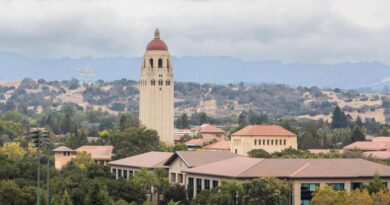How Global Refuge Merges Politics and Philanthropy — And Why It Should Be Left in the Past

In the 1930s, the Lutheran Immigration and Refugee Service was founded to provide refuge for Lutheran victims of Eastern European communism in the United States. This commendable initiative emerged during the tumult of World War II, embracing refugees eager to integrate into American society, bonded by a common faith.
As Eastern Europe moved away from totalitarian regimes and religious oppression against Lutherans subsided, it would have been prudent for the organization to conclude its mission following the evacuation of Hungarians escaping Soviet rule in 1956. Instead, it manifested signs of what can be termed “March of Dimes Syndrome.”
Today’s Global Refuge has transitioned into a complex entity with a broad and ambiguous agenda. The name change indicates a pivot from serving a specific demographic to a “global” agenda, suggesting that the U.S. bears a responsibility to accommodate anyone arriving. The removal of “Lutheran” from its title also reflects a shift in funding sources — moving from contributions by Midwestern congregations to federal and state financial support, which reached $221 million in 2023.
This development blurs the boundary between a non-governmental organization and an entity that functions as a quasi-governmental body following U.S. policy. While Elon Musk’s recent commentary on Global Refuge’s federal funding generated attention, it is part of a larger systemic issue: organizations presenting as independent charities while acting as government-funded agents impacting immigration policy.
As one of nine agencies partnering with the federal Office of Refugee Resettlement, Global Refuge plays a vital role in disseminating taxpayer funds. Similarly, other religious organizations such as the Hebrew Immigrant Aid Society, Catholic Charities, and the Church World Service have drifted from their foundational missions.
These organizations actively search for individuals claiming threats from conflict and poverty, bringing migrants from Africa, the Middle East, and Latin America, often instilling values that conflict with American ideals of individual freedom, religious diversity, and gender equality.
While compassion for those oppressed worldwide is commendable, it is questionable why the U.S.—and specifically Lutherans—should be responsible for integrating them into American society.
Beyond resettlement, Global Refuge influences immigration policy through assertive lobbying efforts. The organization advocates for sanctuary cities, eases enforcement actions, and opposes detention centers, promoting an open-border agenda without considering long-term social and economic ramifications.
While supporting displaced individuals is praiseworthy, neglecting the strain that mass immigration imposes on local resources and the risks posed by insufficient vetting is irresponsible.
Moreover, Global Refuge’s vetting failures have enabled criminal networks to exploit both the refugees they resettle and the surrounding American communities that host them. Human smuggling operations and drug cartels have taken advantage of U.S. immigration loopholes, using Global Refuge’s activities to inundate the country with undocumented migrants. Many of these individuals, lacking proper supervision, become victims of exploitative labor practices.
Take the Midwestern meatpacking sector as an example, where underage Haitian and Beninois migrants have been reported to be trafficked and coerced into illegal work. These individuals, seeking a better life, find themselves trapped under poor conditions and low wages.
This troubling aspect of the resettlement process often escapes scrutiny, yet Global Refuge’s push for higher admissions—without rigorous screening—continues this cycle of exploitation.
The societal ramifications extend beyond labor violations. In cities like Minneapolis, significant refugee populations have been correlated with increasing crime rates. Reports from the FBI and local authorities highlight a connection between swift demographic changes and escalating crime.
While refugees may not inherently engage in criminal acts, lapses in their integration have sparked social discord. Without adequate support frameworks or assimilation initiatives, these communities often encounter challenges that intensify economic struggles and lead to community fragmentation. Once a beacon of multicultural coexistence, Minneapolis has seen spikes in gang violence following extensive refugee resettlement.
These issues are exacerbated by employment challenges—65% of refugees struggle to secure employment—causing additional strain on social systems. While the intention to assist those escaping difficult circumstances is noble, the less-than-desirable outcomes of inadequately managed resettlement should not be overlooked.
The function of Global Refuge within the resettlement framework, coupled with its promotion of open-border policies, positions it as a quasi-government, taxpayer-funded human trafficking facilitator. The organization’s failure to properly vet entrants, its facilitation of labor exploitation, and its role in contributing to social destabilization underline a pressing need for reform.
The newly established Department of Government Efficiency should conduct an audit of Global Refuge and similar organizations to safeguard against the misuse of taxpayer resources. Moreover, the dynamics between progressive, faith-based NGOs and federal funding warrant reconsideration.
President Trump’s executive order on foreign aid, which mandates a review of taxpayer-supported organizations, should direct the new administration in reevaluating the financial backing provided to entities like Global Refuge.
Instead of debating the legality of these organizations, the national conversation should pivot to the real-world harms they inflict and whether they merit continued support from the federal government.
A century ago, Lutherans did commendable work in rescuing individuals from the clutches of communism. That mission has long been fulfilled.
At this juncture, the focus must shift to safeguarding American citizens and their welfare. It’s time for Global Refuge to fade into history, with American Lutherans redirecting their efforts toward supporting communities domestically and advocating for their faith abroad.
Tim Rosenberger is a legal fellow at the Manhattan Institute. Charles Yockey is a policy analyst at the Manhattan Institute and Budapest Fellow at the Hungary Foundation.



